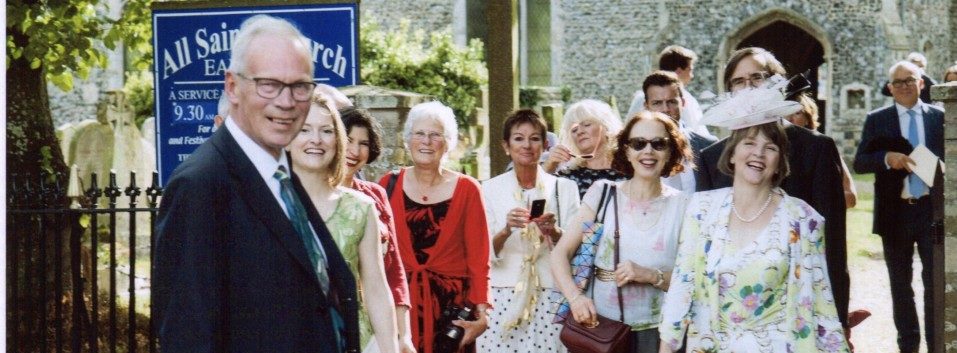I was listening to a programme on Radio 4 yesterday and the slump in sale of photographic film was referred to. There was a conversation with a representative of one of the big photo development firms, who said that this is now a small part of their business – they had realised the writing was, not just on the wall, but on a large neon signboard in their path (this is my linguistic flight of fancy, he spoke sensible English) when one of the directors was in a fairly rural part of China a couple of years back and watched an elderly man clad in traditional clothes start to fish, using a traditional bamboo pole. He caught a large fish. Smiling broadly, he held it up with one hand, took a picture with his mobile phone with the other and sent it to a friend (or maybe his wife – ‘no need to go to the market, sweetie, I’m bringing dinner’). And the onlooking director realised that the whole world had truly changed.
This reminded me of a conversation with my late mother about five years ago. “What is this ‘digital’ stuff they keep talking about now?” she asked me. I wondered how to put my basic and scanty knowledge into a form that would not completely confuse her. “Well, you input data using, for example, binary numbers” I started. “Ah” she interrupted, “I know all about binary numbers, I understand now. Thank you darling.”
It was true too, that she had been on a course about 30 years before and come home talking with great interest about binary code – and that was enough. She was completely happy that now she understood digital technology. And furthermore, she thought that I did too.

who’s DIGITAL mobile was it? The Chinaman’s? I toured China a couple of years ago and went to some primitive villages. I was amazed that most of them were yacking away on the mobiles.
Yes, was it a bit ambiguous? I’ll reword it to make it clearer.
Changed, hope that’s better.
A course on binary code? Blimey, your mother was made of stern stuff.
Do you remember how she found herself on a course on binary code?
Well, she did a good deal of voluntary work and was for a time the area’s Central Organiser of the WRVS (Women’s Royal Voluntary Society). It was during the Cold War and there was a lot of Civil Defence training (the late 60s wasn’t all peace and love and hippy pot smoking). It may have been something to do with this, though I can’t think why she’d have needed it.
Unless it was the early 70s, when she was a local town councillor and a school governor; might have been part of the training for that – new technology being taught in schools and the governors keeping up with it.
Z
I don’t know your history. Are you one those part-time country folks whom all the true-blue country hillbillies don’t like? I ask this because you talked about Islington.
I’m a full-time yokel. I’ve lived in Norfolk for twenty years, before which I lived in Suffolk.
I don’t suppose I’ll ever be thought of as a local, but neither am I a complete outsider, as I live in the village (and the house) where my husband was born.
Mind you, I did go to London once. Coo, that was a funny big place (as we say in Lowestoft). I only talk about Islington to make me sound all metropolitan and interesting.
are you from Lowestoft oringinally?
Good morning Banana – yes, I grew up in Oulton Broad, right by the broad, then lived in Lowestoft after I was married. Do you know Lowestoft well?
Dolly was brought up in Lowestoft. But being a la-di-da that he has become he tells people he’s from Southwold.
Dolly and I take the doglets to the beach there whenever we are in Nurfuck.
I lived in Broad View Road in Oulton Broad and, when I was married, in Pakefield, the south end of Lowestoft.
Binary numbers? No I think I’ll pass on that one.